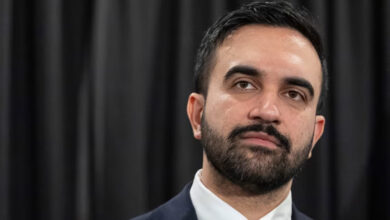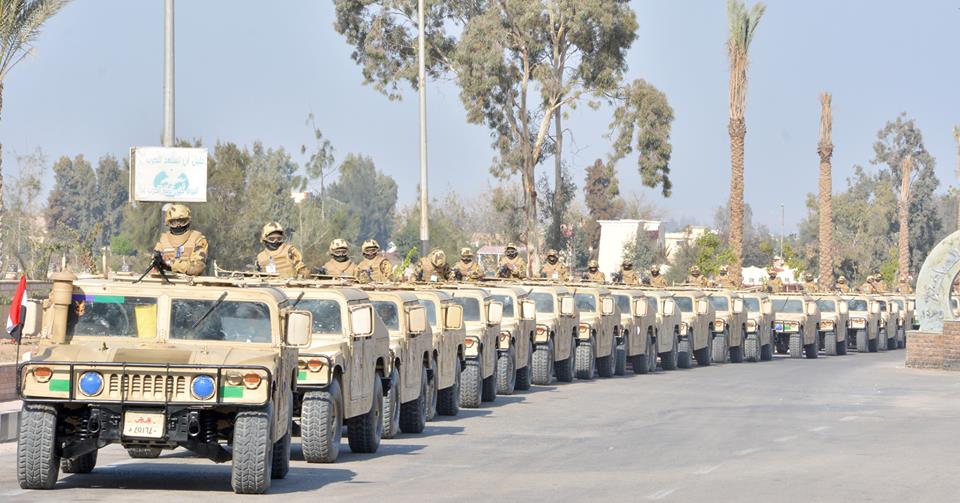As Israel’s diplomatic crisis with Egypt intensified this past week, commentators in the Israeli press have been unable to resist making comparisons with Turkey in mid-2010, when Israeli soldiers killed eight Turkish nationals during a raid on the Marmara, a ship in a flotilla seeking to break Israel’s longstanding blockade on the Gaza Strip.
Egypt’s crisis with Israel started on Thursday, when the Israeli military killed five Egyptian police and army personnel while pursuing what they believed to be Gaza-based Palestinian militants, who had earlier that day launched an attack on Israelis from Egyptian territory in Sinai. Eight Israelis were killed in the terrorist attacks just north of Sinai.
Israel's media outlets focussed heavily on the increasing exchanges of violence between Gazan militants and the Israeli military following Thursday's terrorist attacks. Perhaps not coincidentally, the same Israeli media sources reported that United Nations Secretary General Ban Ki-moon had agreed to a request from Turkey to delay publication of a report concerning the Marmara incident, and that negotiations between Turkey and Israel would resume concerning the wording of an Israeli apology to Turkey acceptable to Israeli Prime Minister Benjamin Netanyahu.
The similarities between the two cases are striking. In both cases, Israel’s killing – inadvertent or otherwise – of foreign nationals led to a series of events that represented low points in Israel’s alliance with its neighbors. In both cases, the countries had closely cooperated with Israel in counter-terrorism and multi-billion dollar trade agreements, such as the sale of natural gas.
In both cases, it was reported that the offended country had recalled its ambassador from Israel (although in the case of Egypt, the reports turned out false), while Israel protested that the killings were accidents for which its infuriated ally bears partial responsibility. And both times, the injured nations demanded a formal apology from Israel and a thorough investigation into what had happened, while their citizens held anti-Israel demonstrations – unprecedented in scope – demanding that relations with Israel be cut, ending all forms of cooperation, and expelling its ambassador.
Today, Israel’s relations with Turkey appear irreparably damaged. Ankara has yet to retore its ambassador to Tel Aviv, while Israel appears concerned that Turkey will refuse to approve the new Israeli ambassador when the time comes. The Israelis, meanwhile, are understandably worried that the deterioration of relations that occured with Turkey might be repeated with Egypt.
“Israel must not again be thrown into games over matters of prestige, which will play into the hands of those who oppose the peace accord Egypt forged with us,” writes Israel’s leading liberal daily Haaretz in a Sunday editorial, in subtle reference to Israel’s refusal to give in to Turkey’s demands for an official apology following its attack on the Marmara. The headline of the editorial was “Israel must maintain neighborly relations with Egypt.”
However, here is where comparisons between Turkey and Egypt end; Cairo, unlike Ankara, has no interest in letting relations deteriorate to the point of no return. Unlike Turkey, Cairo has much more to lose, most notably its US$2 billion a year aid package from America, which Egypt receives largely on the condition that it plays nicely with Israel. Most of that aid goes directly to the military currently ruling the country.
“Some view these steps as an Egyptian attempt to imitate the ‘Turkish model’ and the demands by Turkish Prime Minister Erdogan following the 2010 flotilla incident,” writes veteran war correspondent Ron Ben-Yishai of Yediot Aharonot, Israel’s best-selling Hebrew-language daily, on Sunday. “But a closer look reveals that Egypt does not seek to humiliate Israel, only to present a tougher stance vis-à-vis Jerusalem. The reason for this is Egypt's desire to deflect the pressures exerted on it by Israel's political enemies, who are relishing the death of the Egyptian soldiers in the media.”
Whereas Turkey’s leaders deliberately escalated the crises and encouraged popular anger toward Israel, Egypt’s military leadership seeks to contain the popular uproar and restore Israel-Egypt relations to what they were – if not to pre-25 January under former President Hosni Mubarak, at least to what they were on 17 August when the border was calm, according to Israeli commentators.
The efforts of Egypt’s ruling military council to defuse tensions, despite massive demonstrators before the Israeli embassy in Cairo that would have been broken up by police under Mubarak, have been widely reported in the Israeli news media.
Ehud Yaari, a prominent commentator for Arab affairs on Channel 2, Israel’s most popular television news station, praises what he interprets as the unwillingness of Egypt’s ruling military council to give in to popular pressure.
In addition to the “112 movements and parties” taking part in the protests, there are “important writers and liberal personalities… who are essentially calling to cut relations with Israel and cancel or freeze the peace agreement,” he says. The demonstrations also call for the expulsion of the Israeli ambassador and the ending of gas exports.
“That is huge pressure,” he goes on, “[but] the military in confronting it with the press conference they held today” where they called on the media to “demonstrate responsibility, not to rile the streets.”
After the bloody incident along the national border, the Egyptian government demanded a formal apology from the Israel, and Israel’s Defense Minister Ehud Barak responded by expressing "regret". In the press conference, the military council praised Barak’s statement as a “step in a positive direction,” though they cautioned that it was not enough to contain popular anger.
The council also said that it was awaiting the results of the joint Israeli-Egyptian investigation into the incident and demanded a swift timetable for its completion.
All of this, Yaari tells his viewers, “is basically an attempt to calm down the uproar.”
To illustrate the extent of public anger with which the ruling military council must contend, Yaari transitions into a report about Cairo’s anti-Israel demonstration, during which, with the encouragement of the crowd, an Egyptian youth becomes a hero by climbing to the top of the Israeli Embassy to remove the Israeli flag, which he throws down to the crowd to be burned. Unable or unwilling to confront the youth, security forces are shown standing by.
Yaari's sympathies with Egypt’s military rulers are hardly exceptional among Israeli commentators.
Arab affairs commentator Zvi Yehezkeli of Channel 10, Israel’s second most widely watched Israeli news network, expresses confidence that Cairo will accept the outcome of the joint investigation, and Israel’s response to its findings, once they become clear.
“It appears to me like they are not backing themselves too far or too quickly into a corner. They didn’t demand another apology, and didn’t, in the end, withdraw their ambassador – an issue left open-ended. They also agreed on a joint investigation with Israel,” he tells viewers.
Such analysis differs remarkably from that of Egyptian news outlets, which instead emphasize the military council’s dissatisfaction with Israeli overtures. “Egypt: Israeli apology not enough,” reads a headline from the Middle East News Agency, an Egyptian state-run wire service.
However, the Israeli newspapers were not entirely devoid of criticism of Egypt's military council. Among the critics was Zvi Mazel, a former Israeli ambassador to Egypt, who puts blame for affair squarely on the shoulders of the ruling military council. The article, which was printed in both the Jerusalem Post, Israel’s leading English-language daily, on Sunday, as well in Maariv, a popular Hebrew-language tabloid, said Egypt’s contention that Israel has not done enough to keep the border safe represents “a sorry attempt by the Supreme Military Council, which has been ruling Egypt since Hosni Mubarak’s ouster, to cover its failure to keep the peace in Sinai by throwing the blame on someone else – Israel, of course – in a time honored Egyptian practice.”
Rather than Israel issuing an apology, Egypt should instead be the one to apologize, he contends.
Mazel even goes so far as to imply Egyptian complicity in the terrorist attack. “How come they saw nothing?” He writes. “Could it be that there were some who decided to close their eyes – and maybe others who decided to help?”
Yet despite the rhetoric, Mazel concedes that Egypt has no “interest in escalating the present incident.”
"What must be done now is to refrain from inflammatory statements,” he concludes, “and to thoroughly investigate what happened and how it happened through coordinated efforts.
"More than ever in these troubled times, peace is of paramount importance both to Egypt and to Israel,” he says.




